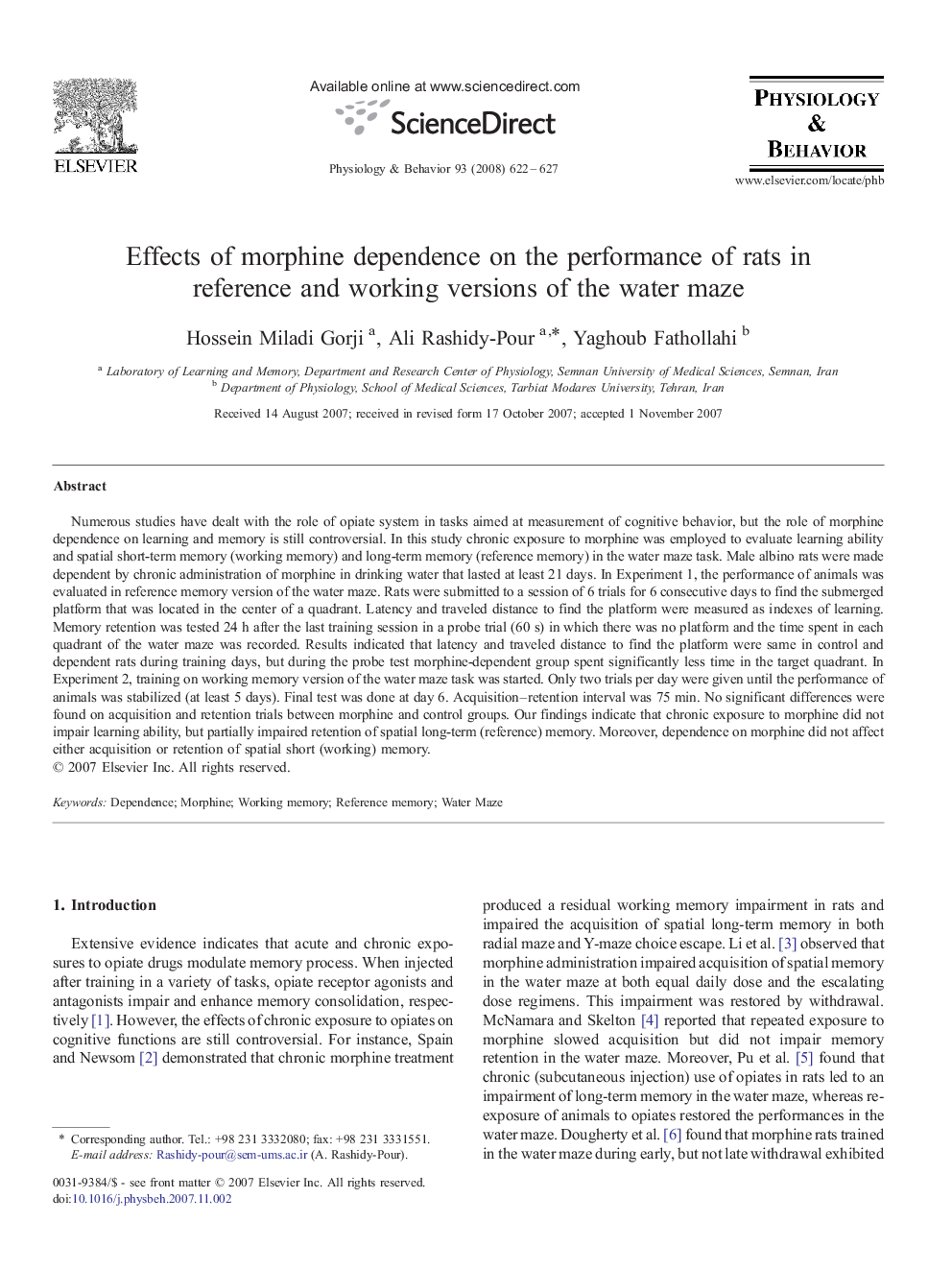| Article ID | Journal | Published Year | Pages | File Type |
|---|---|---|---|---|
| 2845700 | Physiology & Behavior | 2008 | 6 Pages |
Numerous studies have dealt with the role of opiate system in tasks aimed at measurement of cognitive behavior, but the role of morphine dependence on learning and memory is still controversial. In this study chronic exposure to morphine was employed to evaluate learning ability and spatial short-term memory (working memory) and long-term memory (reference memory) in the water maze task. Male albino rats were made dependent by chronic administration of morphine in drinking water that lasted at least 21 days. In Experiment 1, the performance of animals was evaluated in reference memory version of the water maze. Rats were submitted to a session of 6 trials for 6 consecutive days to find the submerged platform that was located in the center of a quadrant. Latency and traveled distance to find the platform were measured as indexes of learning. Memory retention was tested 24 h after the last training session in a probe trial (60 s) in which there was no platform and the time spent in each quadrant of the water maze was recorded. Results indicated that latency and traveled distance to find the platform were same in control and dependent rats during training days, but during the probe test morphine-dependent group spent significantly less time in the target quadrant. In Experiment 2, training on working memory version of the water maze task was started. Only two trials per day were given until the performance of animals was stabilized (at least 5 days). Final test was done at day 6. Acquisition–retention interval was 75 min. No significant differences were found on acquisition and retention trials between morphine and control groups. Our findings indicate that chronic exposure to morphine did not impair learning ability, but partially impaired retention of spatial long-term (reference) memory. Moreover, dependence on morphine did not affect either acquisition or retention of spatial short (working) memory.
